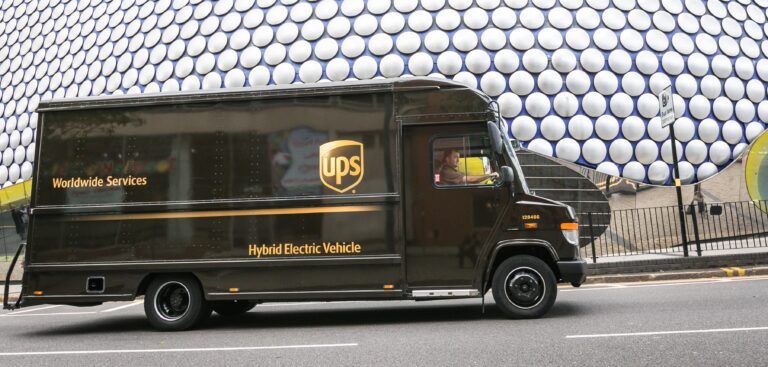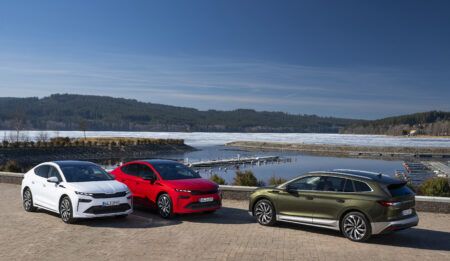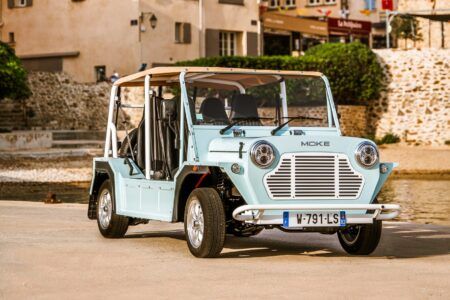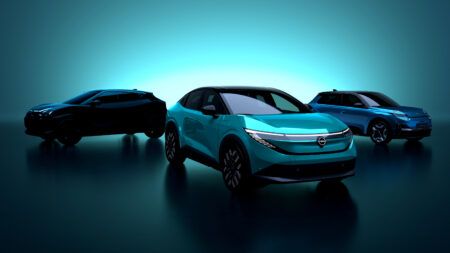Logistics giant, UPS, has invested in a new line of range-extended hybrid electric vehicles for delivery operations that use geofencing technology to autonomously switch between powertrain modes to gain up to four-times more range.
The fleet of 15 new delivery trucks employ technology and software from UK-based company, Tevva, that is able to detect whether it is in a city center, Clean Air Zone, or Ultra Low Emissions Zone (ULEZ), and then change between pure electric and diesel hybrid modes automatically.
The vehicles are equipped with a 150kW electric motor that provides an electronically limited ability of up to 2000Nm of torque. The powertrain is supported by a Lithium Ion 74kWh battery that will provide an operational EV range in excess of 100km.
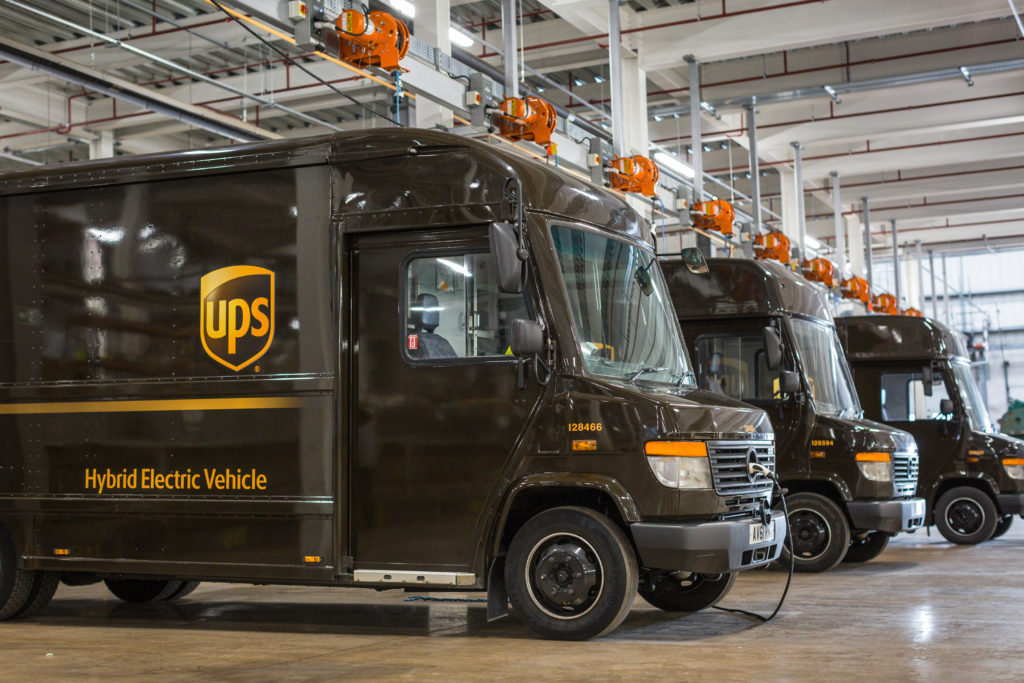
When reaching a predetermined boundary, such as prior to entering an urban environment or clean air zone. This same technology allows the vehicle to switch to the on-board Range Extender that utilizes a significantly smaller and efficient diesel engine to recharge the battery, such as on the motorway connecting neighboring towns and cities or to make a journey back to the UPS depot.
The benefit of the technology is to avoid the range limitation of pure electric delivery vehicles as many depots are located outside of city centers, increasing route range and maintaining cargo capacity of traditional diesel trucks. The REEVs can travel an average combined power range of 400km, whilst still ensuring they make zero emissions within the urban areas on their routes.
“This is a big breakthrough for our continued use of electric vehicles in the UK – and for the communities we serve,” said Luke Wake, director of automotive engineering & advanced technology, UPS International. “The range jump from 100km to 400km is the result of UPS’s latest collaboration with Tevva. We can serve our customers with lower emission, alternatively-fueled vehicles in places beyond the reach of existing pure electric vehicles at this weight class.
Tevva believes its technology is a “gamechanger” for the UK, European and global medium duty, urban distribution industry.
“Commercial vehicles account for 27% of transport related CO2 and 5% of total greenhouse gas emissions on Europe’s roads. EU legislation says that this needs to be cut by 15% by 2025 and 30% by 2030, and Net Zero in the UK by 2050,” said Richard Lidstone-Scott, commercial director, Tevva Motors. “What that means is that the electrification of the medium duty truck sector is inevitable, yet many firms and OEMs are still scratching their heads about how and when to make that happen. At Tevva we already have viable technology, proven in real-world trials, which can help companies like UPS reduce emissions to almost zero without compromising their business-critical ability to carry full payloads. What’s more, we’re already working on new technologies to make our solution more efficient still.”


